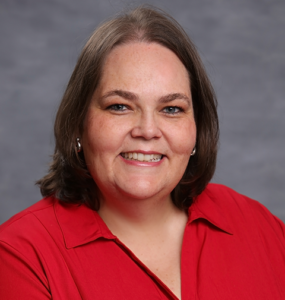Volunteering used to be a mainstay of U.S. culture. But in recent years, giving back to their community hasn't played as big a role in many Americans' lives.
New research from the University of Georgia suggests the economy may be to blame.
The researchers found that people living in disadvantaged communities or areas that have high levels of economic inequality were less likely to volunteer.
"Historically, rural areas have had higher volunteering rates than urban ones," said Rebecca Nesbit, lead author of the study and a professor in UGA's School of Public and International Affairs.
"These communities often have closer ties and more social interaction with each other, and those close ties may make them more likely to volunteer. Because when you're volunteering for the local food bank in these communities, you're helping people that you have a personal connection to."
The recession of 2008 didn't help matters. And more than a decade and a half later, volunteering rates have yet to recover.
"Any advantage to volunteering afforded by good economic growth before the recession was wiped out after the recession, and that can lead people to change their behavior," Nesbit said. "In poor economic conditions, people might take energy away from their voluntary activities to put it into more income-producing activities that create a greater sense of personal stability."
Economically disadvantaged areas hit the hardest
The study is the first analysis of confidential level volunteering data in a secure U.S. Census Bureau Research Data Center, which is a nationally representative sample of 56,000 households interviewed each month. This data is considered the premiere source of information on national and state volunteering statistics.
The researchers relied on a dataset of about 90,000 individuals for each year of the survey.
The study examined effects of economic disadvantage and inequality, and how the Great Recession exacerbated existing differences in volunteering rates between rural and urban communities.
What the decline in volunteering tells us is that there are a lot of communities that were hit by the recession and just haven't bounced back." -Rebecca Nesbit, School of Public and International Affairs
The researchers found that the recession had the biggest dampening effect on volunteering in areas with the most economic growth and above average income equality.
"What the decline in volunteering tells us is that there are a lot of communities that were hit by the recession and just haven't bounced back," Nesbit said. "Whether that decline is going to continue or whether these communities will rebound eventually, we don't know yet."
The demographics of rural communities are changing, with more youth leaving their hometowns for bigger cities while the population left behind ages. That shift in people's sense of community may be one reason these communities' volunteering rates dropped so significantly, the researchers said.
People who lived in areas with growing economies were more likely to volunteer, according to the study.
Even years after the recession ended, the negative effects persisted, which may indicate lingering social or psychological effects that make people more hesitant to invest time and resources into volunteer efforts, the researchers said.
"One general high-level finding is that local economic conditions matter for volunteering. That's something we can't ignore," Nesbit said. "An implication of that is that as we talk about economic development for communities, we shouldn't divorce that from the civic development of communities.
"Policymakers need to understand that if we want to strengthen communities, particularly these rural communities, we need a more holistic approach. It can't just be about economic development, and it can't just be about civic engagement. It has to be both."
Published Nonprofit and Voluntary Sector Quarterly, the study was co-authored by Laurie Paarlberg, of Indiana University – Indianapolis, and Suyeon Jo, of the University of Arizona Tucson.







